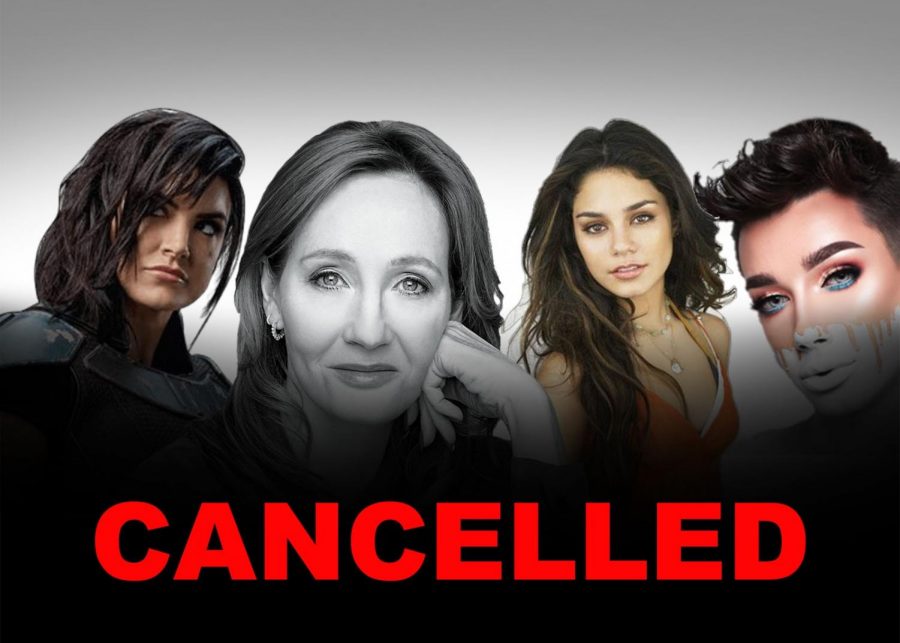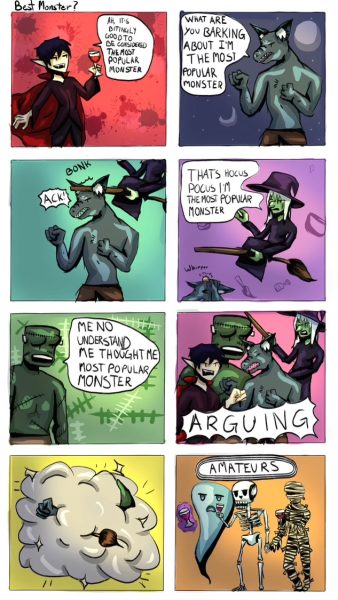Opinion: Cancel Culture
Gen Z’s Toxic Trend
Over the past few years, Cancel Culture has become the biggest (and most toxic) trend of our generation. It has ruined lives and careers in a matter of days if not hours.
Cancel Culture is characterized by online mobs that target certain public figures relentlessly using mistakes that he or she has made in the past. Oftentimes, ‘cancelling’ happens via online mobs on Twitter. Anything they post will have hordes of negative comments and dislikes. Anything they do in public will be mocked. The cruelty often does not stop until that person is fired, censored, or forced to step out of the spotlight.
People realized the power they had in numbers when hordes of users banded together to make the 2018 YouTube Rewind the most disliked video on the site. The video ended up with 18 million dislikes. With that power, masses of instagram users made a picture of an egg, the most liked picture on the site, surpassing a picture posted by Kylie Jenner. The egg reached 30.5 million likes.
Those two events on their own are harmless, but people began to use this power to hurt individuals. Take JK Rowling, author of Harry Potter, for example. Rowling was accused of being transphobic on Twitter several times. I have always loved the Harry Potter series and I have looked up to Rowling for years, but even I ended up criticizing her. She made a mistake that probably hurt others, but that does not overshadow every great thing she has done. She has donated millions of dollars to various charities. She was the first person to drop off the Forbes billionaire list due to how much she donated. She has used her fame and popularity to speak out against several injustices. JK Rowling bounced back from the cancelling, and is using her standing to spread awareness about domestic violence.
Gina Carano, famous actress, was also targeted by Cancel Culture. The actress, who starred on The Mandalorian, was accused of making several controversial tweets. Carano made tweets mocking pronouns in bios, comparing the holocaust to the current treatment of Republicans, and supporting President Trump’s voter fraud claims. She was subsequently targeted by users who used the hashtag ‘#cancelginacarano’ to attack her. Carano apologized for a few of her comments, but not all. Either way, Disney fired the actress from her role in The Mandalorian after hundreds of users called for them to take action.
Immediately after Gina Carano was fired, the people on the other side of the argument stepped up. The counter side started the hashtag ‘#canceldisneyplus’ which they used to call for Disney to give Carano the role back. This hashtag was also used to support cancelling subscriptions to Disney+ if the actress was not given the role back. Carano is still under fire, and is not likely going to be cast in Season 3 of The Mandalorian.
Other public figures who have been canceled include James Charles, Vanessa Hudgens, and Shane Dawson.
There’s nothing legally or constitutionally wrong with Cancel Culture. Freedom of speech is arguably the most important amendment, and Cancel Culture is just using that right. The problem is whether or not it’s ethical. Many twitter users who participate, defend cancelling as simply the consequences to their actions. It is hardly fair to say that ruining someone’s career and reputation is equivalent to making damaging comments on social media. It is reasonable to call people out for saying bad things, but it is not reasonable to try and destroy them when they have apologized and/or corrected their behavior.
In the words of one of the greatest English poets, Alexander Pope, “To err is human; to forgive, divine.”










